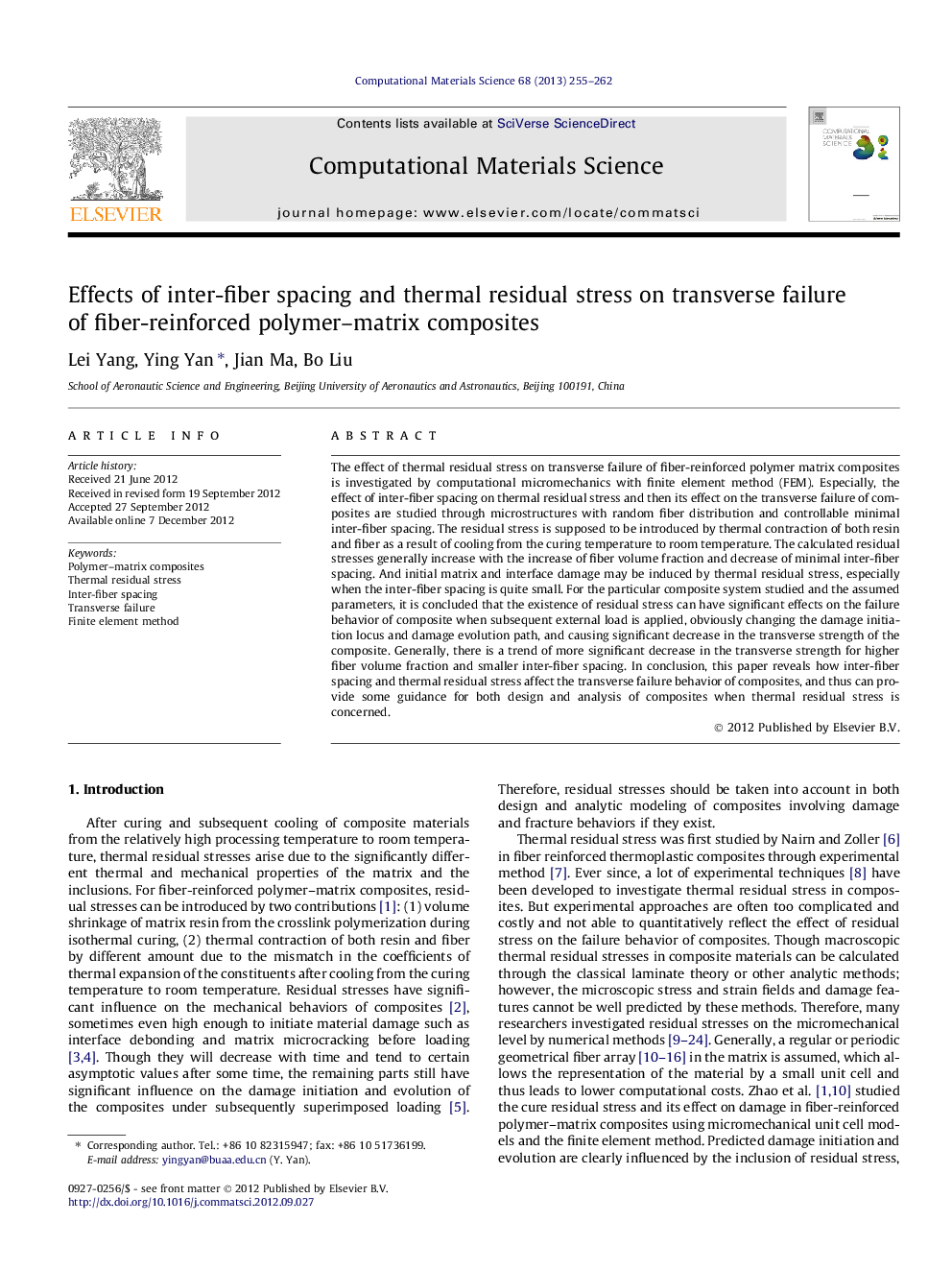| Article ID | Journal | Published Year | Pages | File Type |
|---|---|---|---|---|
| 1561351 | Computational Materials Science | 2013 | 8 Pages |
The effect of thermal residual stress on transverse failure of fiber-reinforced polymer matrix composites is investigated by computational micromechanics with finite element method (FEM). Especially, the effect of inter-fiber spacing on thermal residual stress and then its effect on the transverse failure of composites are studied through microstructures with random fiber distribution and controllable minimal inter-fiber spacing. The residual stress is supposed to be introduced by thermal contraction of both resin and fiber as a result of cooling from the curing temperature to room temperature. The calculated residual stresses generally increase with the increase of fiber volume fraction and decrease of minimal inter-fiber spacing. And initial matrix and interface damage may be induced by thermal residual stress, especially when the inter-fiber spacing is quite small. For the particular composite system studied and the assumed parameters, it is concluded that the existence of residual stress can have significant effects on the failure behavior of composite when subsequent external load is applied, obviously changing the damage initiation locus and damage evolution path, and causing significant decrease in the transverse strength of the composite. Generally, there is a trend of more significant decrease in the transverse strength for higher fiber volume fraction and smaller inter-fiber spacing. In conclusion, this paper reveals how inter-fiber spacing and thermal residual stress affect the transverse failure behavior of composites, and thus can provide some guidance for both design and analysis of composites when thermal residual stress is concerned.
► The effect of thermal residual stress on transverse failure of composite is studied by FEM. ► Thermal residual stress increases with the decrease of minimal inter-fiber spacing. ► Initial matrix damage may be induced by thermal residual stress. ► Residual stress causes significant decrease in transverse strength of composite. ► There is more decrease in transverse strength for smaller inter-fiber spacing.
